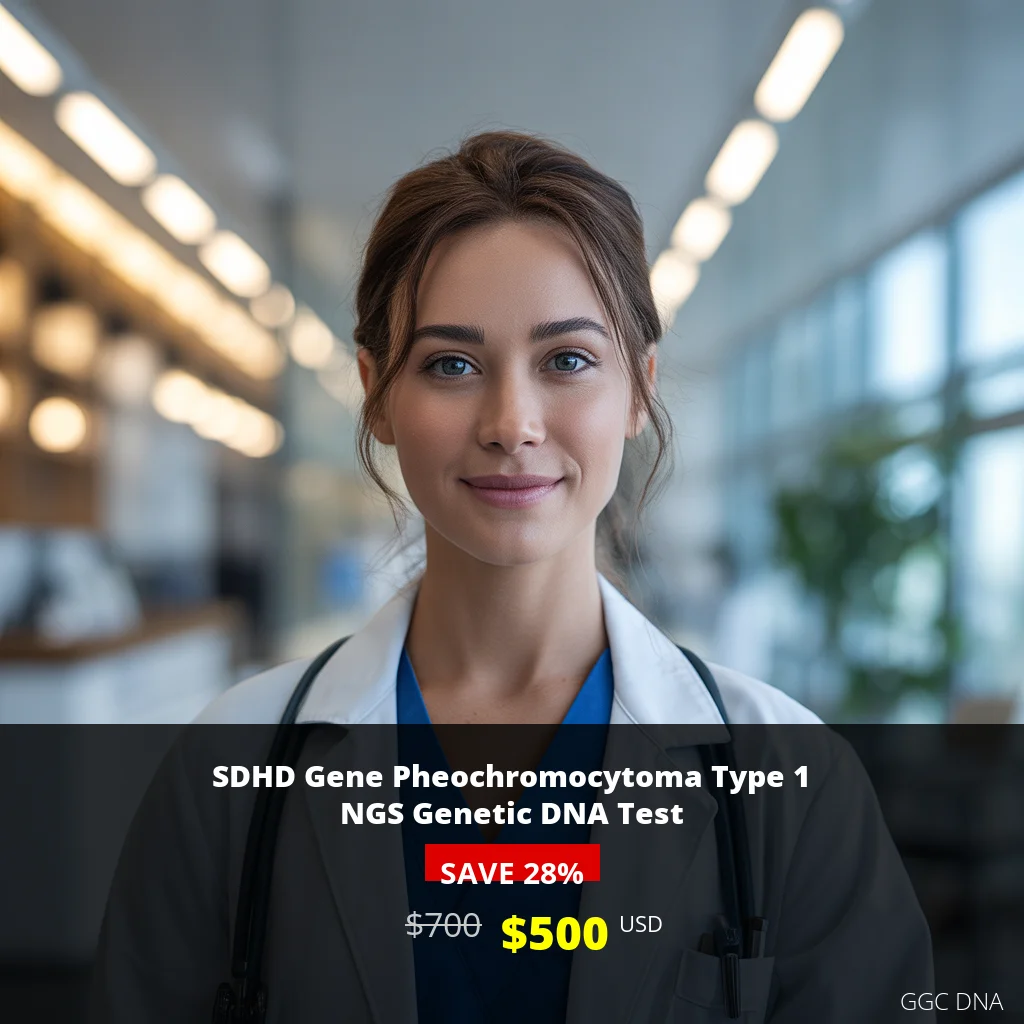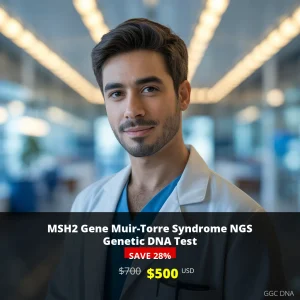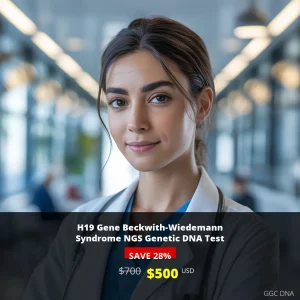SDHD Gene Pheochromocytoma Type 1 NGS Genetic DNA Test
Comprehensive Genetic Screening for Hereditary Cancer Risk
The SDHD Gene Pheochromocytoma Type 1 NGS Genetic DNA Test represents a breakthrough in hereditary cancer screening, specifically targeting mutations associated with pheochromocytoma and paraganglioma syndromes. This advanced diagnostic tool utilizes cutting-edge Next Generation Sequencing technology to provide comprehensive genetic analysis for individuals at risk of developing these rare neuroendocrine tumors.
What This Test Measures and Detects
This specialized genetic test specifically analyzes the SDHD (Succinate Dehydrogenase Complex Subunit D) gene for pathogenic variants that cause hereditary paraganglioma-pheochromocytoma syndrome type 1. The test identifies:
- Point mutations in the SDHD gene coding regions
- Small insertions and deletions affecting gene function
- Copy number variations that may impact SDHD expression
- Specific genetic markers associated with increased tumor risk
The SDHD gene plays a crucial role in cellular energy production through the mitochondrial respiratory chain. Mutations in this gene disrupt normal cellular metabolism and can lead to tumor formation in chromaffin cells of the adrenal medulla and extra-adrenal paraganglia.
Who Should Consider This Genetic Test
This test is particularly important for individuals displaying specific clinical indications or family history patterns:
- Family History: Individuals with first-degree relatives diagnosed with pheochromocytoma or paraganglioma
- Early Onset Tumors: Patients diagnosed with pheochromocytoma before age 40
- Multiple Tumors: Individuals with bilateral pheochromocytomas or multiple paragangliomas
- Unexplained Symptoms: Patients with episodic hypertension, headaches, palpitations, or sweating spells
- Genetic Predisposition: Those with known SDHD mutations in their family lineage
- Preventive Screening: Individuals from families with hereditary endocrine tumor syndromes
Clinical Benefits of SDHD Genetic Testing
Undergoing SDHD genetic testing provides numerous clinical advantages for patients and their families:
- Early Risk Assessment: Identify genetic predisposition before tumor development
- Personalized Surveillance: Implement targeted screening protocols based on genetic status
- Family Planning: Make informed reproductive decisions with genetic counseling
- Proactive Management: Develop preventive strategies for at-risk individuals
- Treatment Guidance: Inform surgical and medical management approaches
- Reduced Anxiety: Provide clarity and reduce uncertainty about hereditary risk
Understanding Your Test Results
Your SDHD genetic test results will fall into one of several categories, each with specific implications:
- Positive Result: Indicates the presence of a known pathogenic SDHD mutation, confirming hereditary paraganglioma-pheochromocytoma syndrome type 1. This requires regular surveillance and may impact family members.
- Negative Result: No pathogenic SDHD mutations detected. However, clinical follow-up may still be recommended based on family history and symptoms.
- Variant of Uncertain Significance (VUS): Identifies a genetic change with unknown clinical significance. Additional family studies may be needed for interpretation.
- No Mutation Detected: No SDHD mutations found, but other genetic causes of pheochromocytoma may need consideration.
All results should be discussed with a qualified genetic counselor or oncologist who can provide personalized interpretation and management recommendations.
Test Pricing and Availability
| Test Component | Price (USD) |
|---|---|
| Discount Price | $500 |
| Regular Price | $700 |
| Turnaround Time | 3 to 4 Weeks |
| Sample Type | Blood, Extracted DNA, or One Drop Blood on FTA Card |
Nationwide Testing Availability
We have conveniently located testing centers across the United States, including major metropolitan areas such as New York, Los Angeles, Chicago, Houston, Phoenix, Philadelphia, San Antonio, San Diego, Dallas, and San Jose. Our state-of-the-art facilities ensure consistent, high-quality genetic testing services with rapid turnaround times.
Take Control of Your Genetic Health Today
Don’t wait to understand your hereditary cancer risk. The SDHD Gene Pheochromocytoma Type 1 NGS Genetic DNA Test provides crucial information that can guide your healthcare decisions and potentially save lives through early detection and preventive measures.
Call or WhatsApp us today at +1(267) 388-9828 to schedule your genetic counseling session and book your test. Our experienced genetic specialists are ready to help you navigate your genetic health journey with compassion and expertise.
Remember: Early genetic testing for SDHD mutations can lead to proactive monitoring and potentially prevent the development of serious endocrine tumors. Take the first step toward understanding your genetic predisposition today.







